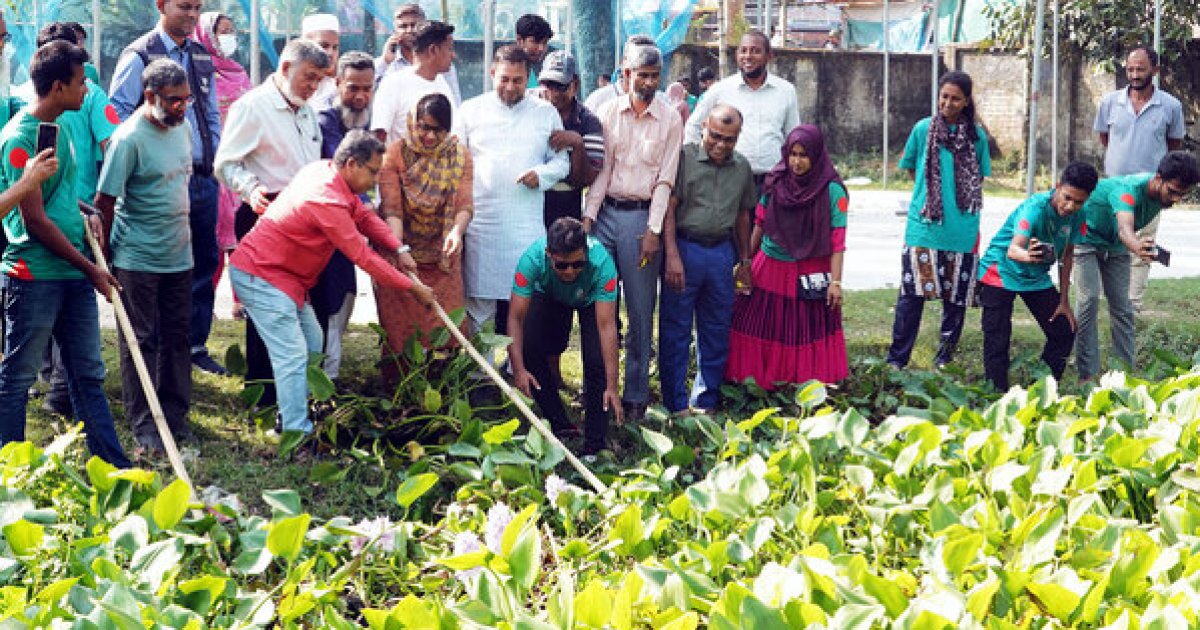A clean-up drive is going on in Khulna aimed at preserving open water bodies and ponds and making the city cleaner and healthier.
As part of the clean-up campaign, water hyacinths and waste were removed from the pond inside Lions School and College on Saturday.
The World Health Organization (WHO) has launched a global project to transform six cities into “healthy cities.” Khulna is the only city selected from Asian countries for this programme, which aims to conserve open water bodies and ponds. The clean-up drive was launched on 25 October.
A recent survey conducted by the Bangladesh Environmental Lawyers Association (BELA) revealed that more than 2,000 ponds have disappeared from Khulna in the past decade. Now there are only 171 ponds, mostly choked with waste. The WHO initiative has revived hope among residents that Khulna may once again become a green and water-rich city if such efforts continue.
Under the Healthy Cities: Urban Governance for Health and Wellbeing in Khulna City Corporation project, the KCC is restoring ponds and other waterbodies across various wards with support from the WHO and Bangladesh’s Directorate General of Health Services.
Kohinur Jahan, KCC’s Chief Waste Management Officer and Executive Magistrate, inaugurated the clean-up drive on Saturday. KUET Professor Dr Tushar Kanti Roy, BELA’s Divisional Coordinator Mahfuzur Rahman Mukul, and Lions School and College Principal Md Badsha Khan, among others, were present at the programme, chaired by KCC’s Education and Cultural Officer SKM Tashaduzzaman.
Members of BD Clean–Khulna also took part in the activity.
The KCC authority has urged residents to keep their homes and surroundings clean to curb mosquito breeding and prevent dengue and chikungunya outbreaks.
WHO’s Khulna representative Asif Ahmed said, “Open water bodies are vital for a healthy city, yet their numbers are declining rapidly.”
Dr Tushar Kanti Roy said that Khulna’s average annual temperature has risen by nearly one degree Celsius in the past decade due to the loss of ponds. “Preserving these water bodies is now essential for maintaining climatic balance,” he said.
Shariful Islam, Divisional Deputy Director of the Department of Environment in Khulna, said that filling the ponds is a punishable offence by law, but their capacity to enforce the law is limited. Still, whenever they receive such reports, they try to take action and work to raise public awareness.



